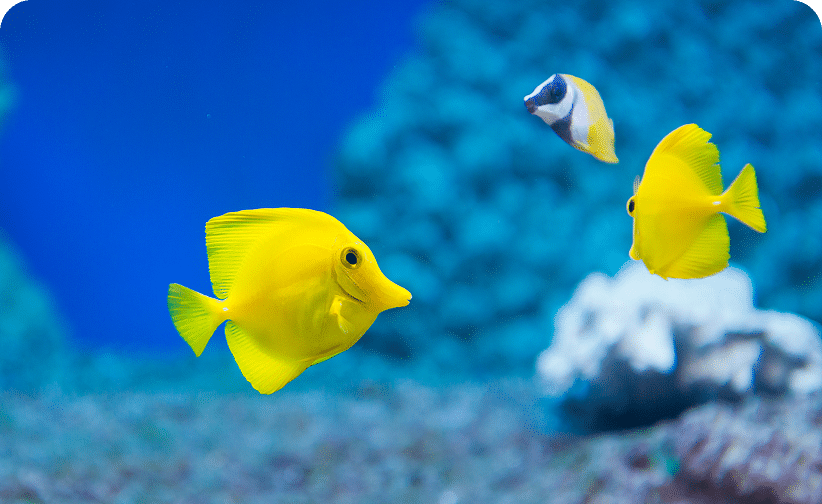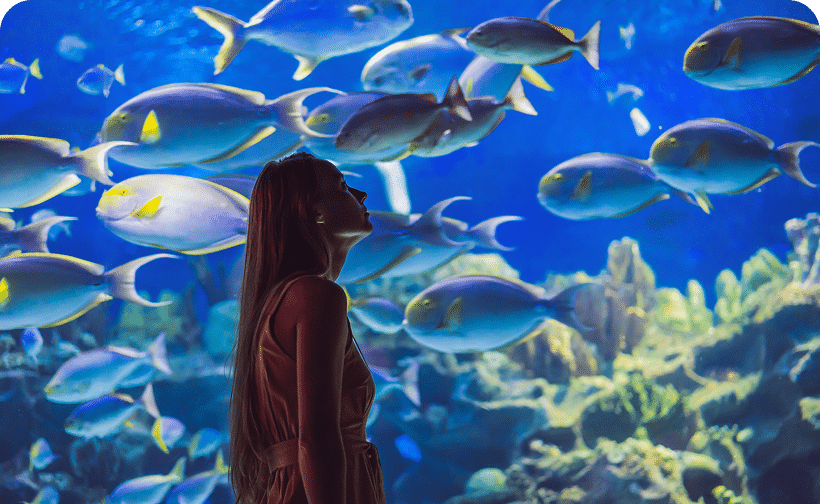Submerge young minds in marine life and STEM learning
Dive into an interactive, educational experience
At Deep Sea World, we recognise the importance of educating others about the ocean and its creatures. That’s why we offer a range of school trip packages tailored to all ages, from nursery right up to secondary school students and beyond. Our education mission statement is at the heart of our educational experience offerings, as we aim to deliver a unique learning experience by promoting informed and inquisitive observation within a stimulating environment.
We’re inviting the next generation to dive into exciting new depths with our educational packages filled with hands-on, interactive workshops and activities. Tying in with the Curriculum for Excellence (CfE) in Scotland, pupils from Early Years Foundation Stage (EYFS), Key Stage 1 (KS1), Key Stage 2 (KS2), Key Stage 3 (KS3) and beyond will not only learn about our underwater world and sea creatures, but they can also get stuck into related topics, expanding their knowledge of:
- Biology: Learning the science behind marine life and sparking interest in STEM learning, from shark anatomy and clever adaptations to the importance of scientific classifications.
- Conservation: Understanding the importance of protecting our sea life and oceans, and what we can all do to help make a big impact.
- The environment: Defining and understanding different habitats, life cycles, food chains and more.
- Marine life: Identifying sea creatures, including their key features, traits and behaviours, and how these aid survival.
Educational school trip workshops
Our themed workshops are designed to teach students about a range of topics through a medley of games, interactivity, and engaging presentations, allowing you to choose one that’s suitable for your group and complements your classroom curriculum.



